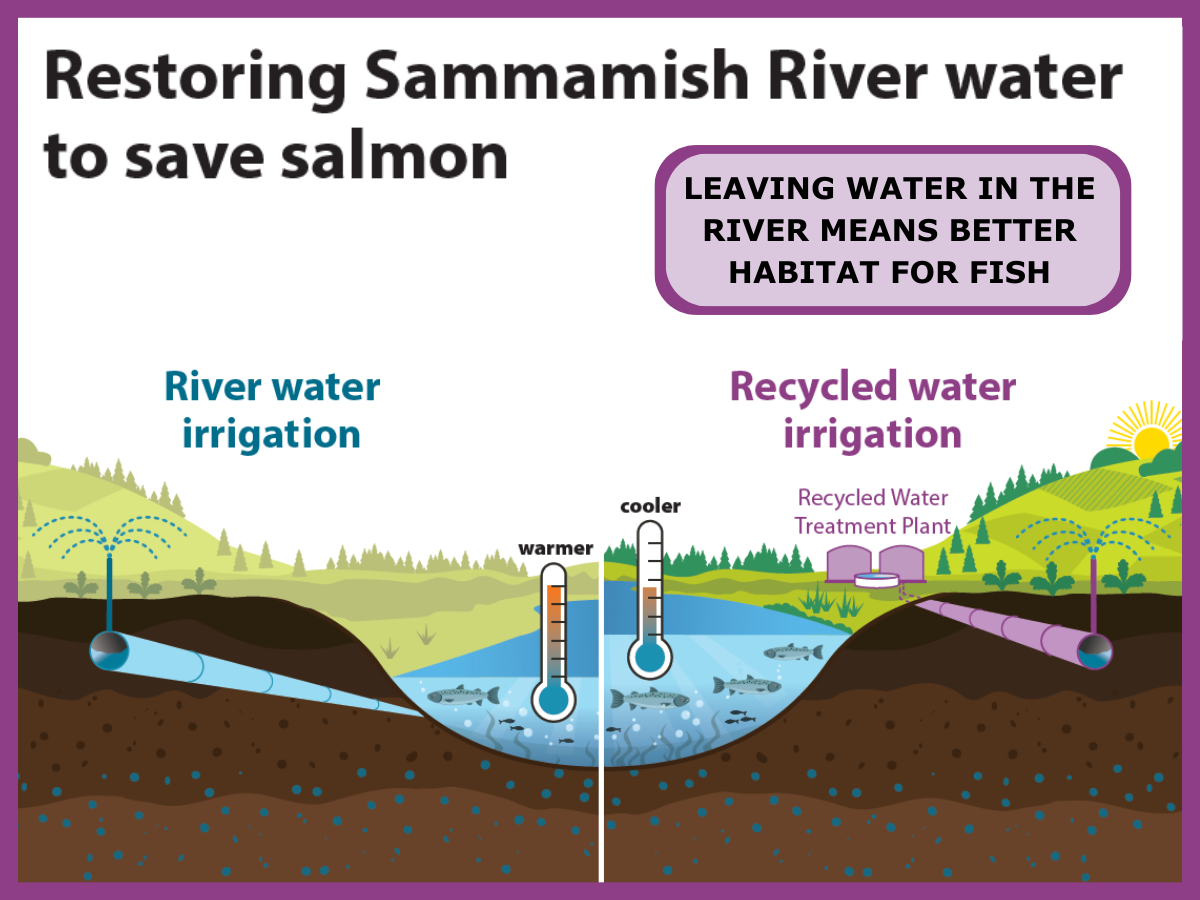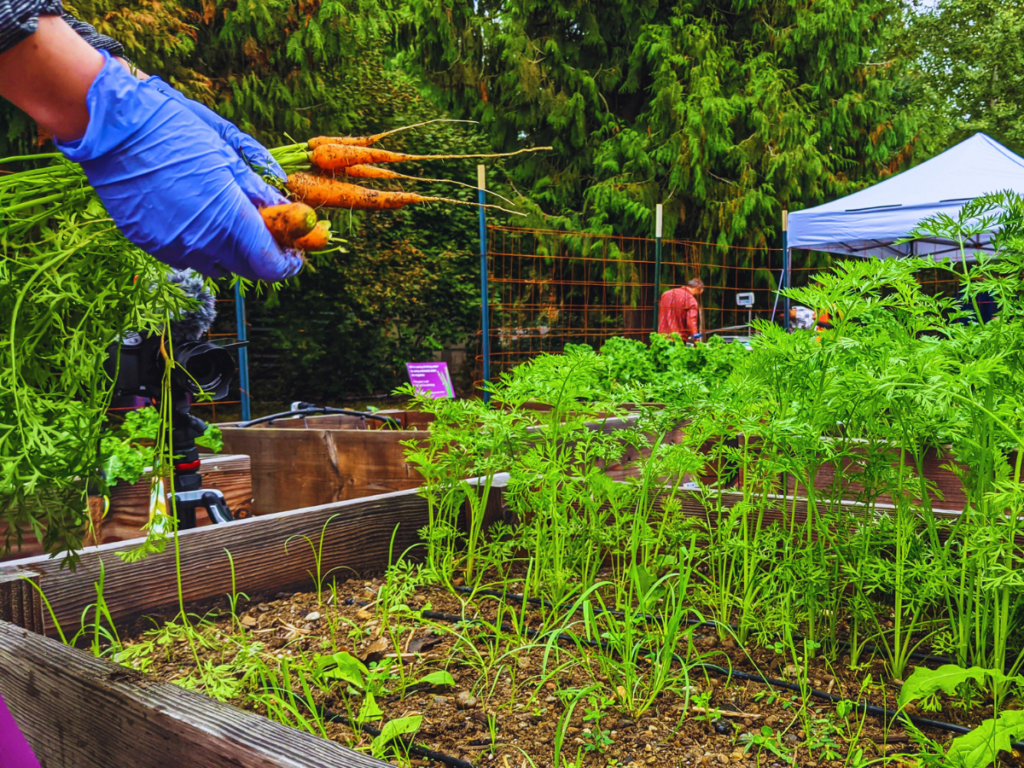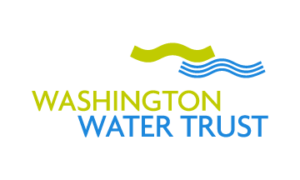Author: James Kraft, Executive Director
Brrrr what a chilly start to the new year—I hope everyone is staying warm! Snow in the mountains is a welcome sight, not only so we can snowshoe, sled, and ski, but because our mountain snowpack keeps many of our salmon streams flowing with cool water throughout the summer.
Sadly, climate change is putting our snowpack at risk. By the end of the century, the North Cascades’ upper elevations may be our last bastion of snow in Washington. We need to restore and protect as much water instream as we can. A key piece to ensuring healthy flows and climate resilience is using more sustainable water sources like recycled water, which is highly treated wastewater.
Some water-stressed states have used recycled water for years to irrigate crops and replenish groundwater. Just last month, California became the second state behind Colorado to allow the consumption of recycled water. Most treated wastewater in western Washington is discharged into streams or Puget Sound. We need to take a more serious look at using this recycled water on a greater scale to support salmon and protect over-tapped freshwater resources.
Our supporters are helping us test recycled water for farm irrigation in the Sammamish Valley. Over the next two years, we are partnering with four local farms who will use Class A recycled water from the Brightwater Treatment Plant to irrigate test plots on their property. Bringing recycled water use on-farm builds on our demonstration garden and is an important next step for this water source.
The recycled water demonstration garden along the Sammamish River in Redmond.
To address our water challenges, we must innovate, invest in new solutions, and learn from successes elsewhere. Our exploration of alternative water sources like recycled water is key to a sustainable freshwater future for our state. We should cherish the snow in our mountains today. It may not be there tomorrow, and it’s time to prepare.
Thank you to all of the partners who have been involved in making the Sammamish Valley Recycled Water Project possible: King County Department of Natural Resources and Parks, King Conservation District, Washington State University, Dr. Edward Kolodziej, Bullitt Foundation, the Muckleshoot Indian Tribe, The Russell Family Foundation, P. Wayne & Jane B. Goode Foundation, Sustainable Path Foundation, Burning Foundation, and all of our donors and supporters.


